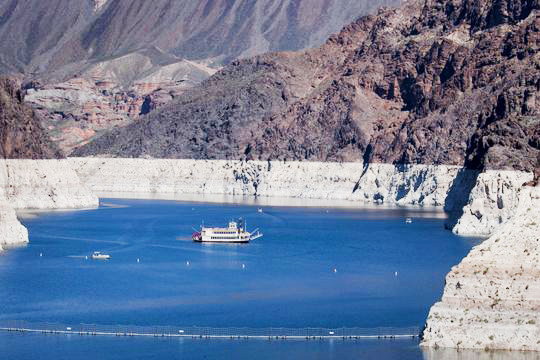By Ian James | Arizona Republic

Lake Mead is down 139 vertical feet./Mark Henle/The Republic
Gov. Doug Ducey has called Arizona’s Colorado River drought plan the most significant piece of water legislation signed in the state in nearly 40 years.
The plan was worked out during seven months of negotiations and enables Arizona to join a larger shortage-sharing agreement with California and Nevada that will spread around the burden of expected water cutbacks.
Now that all the states have endorsed the agreement, Congress will hold initial hearings on Wednesday and Thursday to consider authorizing the deal.
The pact lays out the states’ commitments to take less water from the river’s depletedreservoirs to reduce the risk of a crash. The first cuts in water deliveries could begin as soon as next year in Arizona and Nevada.
The agreement represents the first multistate effort in more than a decade to readjust the collective rules for dealing with potential shortages. In practical terms, it’s a short-term fix aimed at preventing Lake Mead from falling to perilously low levels over the next seven years while longer-term plans for the river take shape.
But even as the drought agreement has earned widespread praise as a historic step toward propping up the river’s reservoirs, Arizona’s plan for implementing the deal has also drawn criticism for relying on a strategy that some argue has significant drawbacks.
Some experts and environmentalists are concerned about the plan’s promotion of more groundwater pumping in parts of the state. They say using state money to drill more agricultural wells in Pinal County, for example, will lead to declining aquifers. And they argue the state missed an opportunity to do more to encourage conservation through the plan.
Doubts about Arizona’s strategy
Some people who followed the process also said the long and sometimes messy negotiations left doubts about Arizona’s ability to be a reliable partner in future water negotiations that are expected to be even more complicated.
“My frustration is that for the rest of us in the Colorado River Basin, we thought and it looked like Arizona had a plan,” said John Fleck, director of the University of New Mexico’s water resources program. “The fact that Arizona abandoned that plan, and potentially put all the other water users in the basin at risk, is kind of a problem.”











